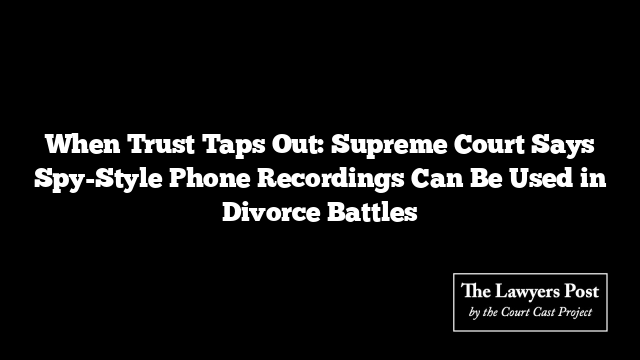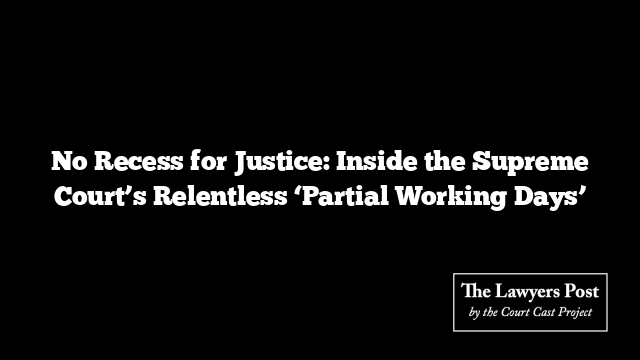In a judgment that slices right through the fine fabric of marital privacy, the Supreme Court ruled on Monday that secretly recorded phone calls between spouses are fair game in divorce cases.
The decision comes as a reversal of an earlier ruling by the Punjab & Haryana High Court, which had slammed such recordings as a “clear breach” of the wife’s fundamental right to privacy. But the top court took a sterner view of the crumbling marriage dynamic, effectively stating: if you’re already snooping, chances are the trust died long ago.
Justices BV Nagarathna and Satish Chandra Sharma, delivering the verdict, weren’t moved by arguments about snooping wrecking homes. Their reasoning? If you’re bugging your partner’s calls, domestic harmony probably isn’t part of the equation anymore.
The drama began in a Bathinda Family Court, where a husband wanted to use a compact disc containing his wife’s phone conversations to prove cruelty. The wife cried foul, calling it an invasion of privacy. The High Court agreed with her, dismissing the recordings and citing the deeply private nature of spousal conversations. But the husband wasn’t giving up—he moved to the Supreme Court, and that’s where things shifted.
The Supreme Court didn’t deny that privacy is a right—but emphasized that it isn’t absolute. Especially not when a marriage has dissolved into accusations and legal battles. Referring to Section 122 of the Indian Evidence Act, the bench noted that even private communications between spouses could be admissible when the marriage is on trial.
According to the petition, many instances of cruelty occur behind closed doors, without witnesses or documentation. In such situations, technology can step in where testimony cannot. The argument was simple: when your entire personal life becomes courtroom evidence, you can’t insist on selective invisibility.
Of course, the ruling doesn’t give carte blanche to tap phones like a private detective. The Court warned that such evidence must still be examined with caution. The credibility of the recordings and the intent behind them matter. But in the age of smartphones and silent recordings, the line between privacy and proof has never looked thinner.
So, while love might be whispered, heartbreak—apparently—can be recorded, played back, and entered as evidence.





